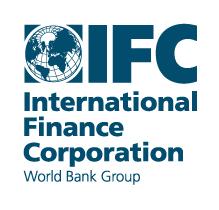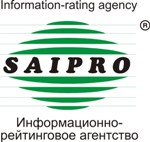|
Scoring and computerization of the financing process to be discussed in Tashkent
29.11.2011
IFC (International Finance Corporation) and Information rating agency SAIPRO organize a two-day seminar-conference on "Re-engineering the funding process through computerization, scoring and credit bureaus", which will be held in Tashkent on November 30 - December 1, 2011 with representatives of leading credit bureaus.
In anticipation of the event, Arif Nasibov, IFC Project Coordinator on improving the financial infrastructure in Uzbekistan (ACAFI), implemented in collaboration with the Swiss government, told our journalist in detail about the concept of scoring and computerization of the financing process.
- The credit scoring is a rather new concept. What is it exactly?
- Scoring is an objective assessment of the creditworthiness of a borrower, which is based on numerical statistical methods. Today, assessment of the borrower's creditworthiness is conducted by bank lending division employers. When conducting such an assessment, they rely on their own knowledge and opinions, as well as on data provided by the borrower. Thus, the assessment is subjective. At the same time scoring is based on a large array of different data, importance of which in the assessment of creditworthiness is confirmed by the previous years' statistics.
The assessment is conducted using information and communication technologies according to the scoring model used, so the accuracy and objectivity of the borrower's creditworthiness based on credit bureau scoring is much higher than bank's estimates.
Scoring systems are based on the analysis of the probability of return of loans by thousands of people. It is believed that there is a correlation between some social data (age, work experience, marital status, etc.) and the creditworthiness of the borrower.
The scoring itself is carried out using the scoring model i.e. a formula with a large number of unknowns and the weight of each. Weights determine the proportion of mathematically expressed characteristics of the borrower that affect his ability to timely pay the lender. Based on the assigned evaluation and weights the overall score of the borrower's creditworthiness is calculated. The value of the estimate and the weight is dynamic and is calculated on the basis of statistical indicators.
- Could you please give an example of evaluation and weight, which are calculated on the basis of statistical indicators?
- For example, a borrower came to the bank asking for a loan. He is 35, working as an accountant for 15 years, has a car and two-bedroom apartment. He is married and has two children. This information is entered into the scoring evaluation system and based on this information the system assigns a score to the borrower.
In this example, the age of the borrower can meet the weight of 30 or 50 percent, depending on the effect of age on repayment of the loan according to the statistics. If young people pay on the loan faster, the weight of age in the general assessment of the creditworthiness of the borrower will higher.
This example illustrates how the scoring model works.
The introduction of credit scoring also reduces the requirements for qualification of bank loan officers, who consider applications for a credit, and increase the speed of their consideration, as the analysis of the borrower's creditworthiness is done out automatically. In those countries, where the credit bureau scoring system is introduced, the scoring assessment is provided to banks within few seconds. A similar system is proposed to be introduced in Uzbekistan.
As a rule, the credit bureau because of its nature have more opportunities to cover a wide range of people and small business, and accordingly, provide a more qualitative assessment of creditworthiness.
- The law of the Republic of Uzbekistan "On the exchange of credit information" says that scoring is the right of a credit bureau. Could you please explain what this means?
- In accordance with the Law of the Republic of Uzbekistan "On the exchange of credit information", the provision of services to assess the creditworthiness of a borrower (scoring) is the right of a credit bureau. It should be noted that the credit bureau can provide scoring services or not ding it at all. It all depends on a database of the credit bureau, the level of its competence, experience and strategies on the market. However, those credit bureaus, which are aimed at efficient business activities, gaining profits and assisting their clients tend to have a scoring system. Such systems are among the most popular credit bureau products for banks, microfinance institutions, leasing companies and other creditors.
Practice shows that the credit bureaus are trying to develop not only the sharing of credit information, but also additional services such as a scoring system of, fraud prevention, analysis of the banks' portfolio.
In order to prepare financial institutions for the effective use of credit bureau services and to assist in further improving the financing process, IFC, and Information rating agency SAIPRO organize a two-day seminar-conference "Re-engineering the funding process through computerization, scoring and credit bureaus" which will be held on November 30 - December 1, 2011. During the event, representatives of such major credit bureaus, as CRIF and CreditInfoSolutions will tell about the scoring system and computerization of the financing process.
- What is the computerization of the financing process?
- Today, the banking system is based on the fact that when a person goes to a bank for a loan, he must submit various documents: loan application, business plan, documents concerning the deposit, statement of earnings and so on. It's not a secret that it takes a lot of time for the bank to review these documents. To accelerate the decision on lending it is necessary to introduce modern systems of computerization of the financing process.
In countries where financial institutions have automated their processes to provide financing, the term of approving a loan is an average of 15-20 minutes after submitting a loan application (mainly consumer loans).
In line with international practices, the introduction of scoring and computerization of lending process can increase profitability and funding and at the same time to significantly reduce operating costs, number of bad debtors and improve the quality of the portfolio as a whole.
UzReport.com
<<< Назад
|


